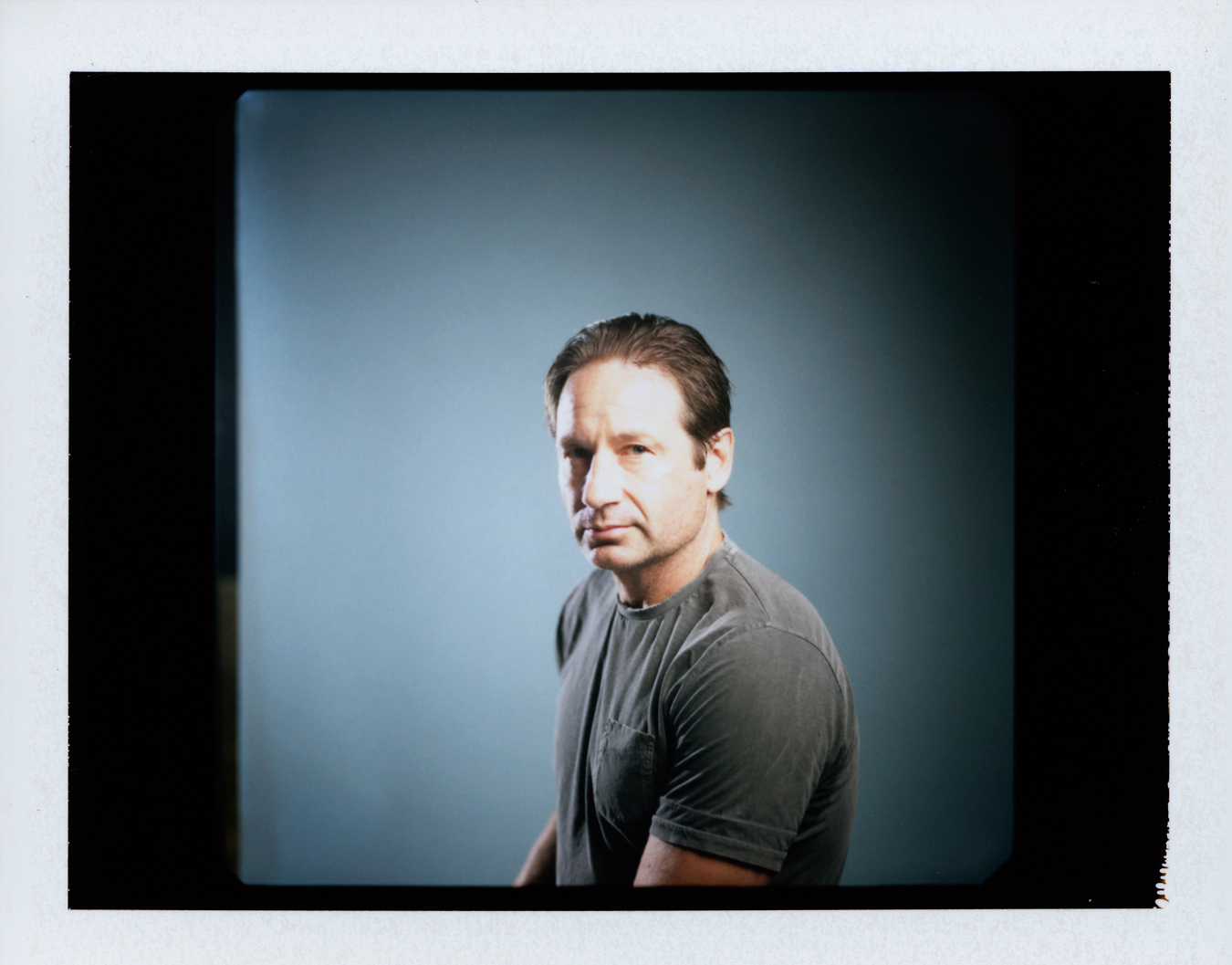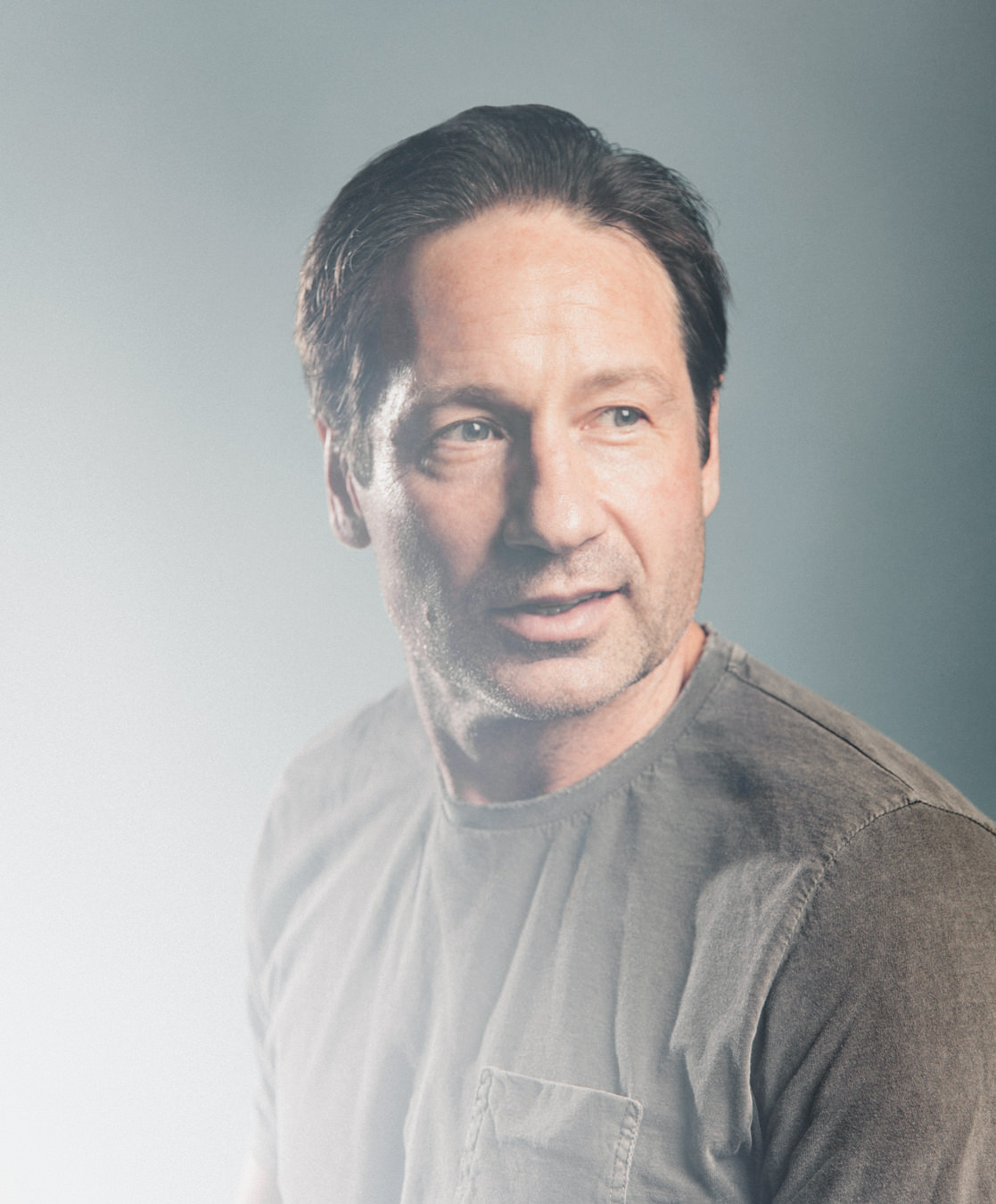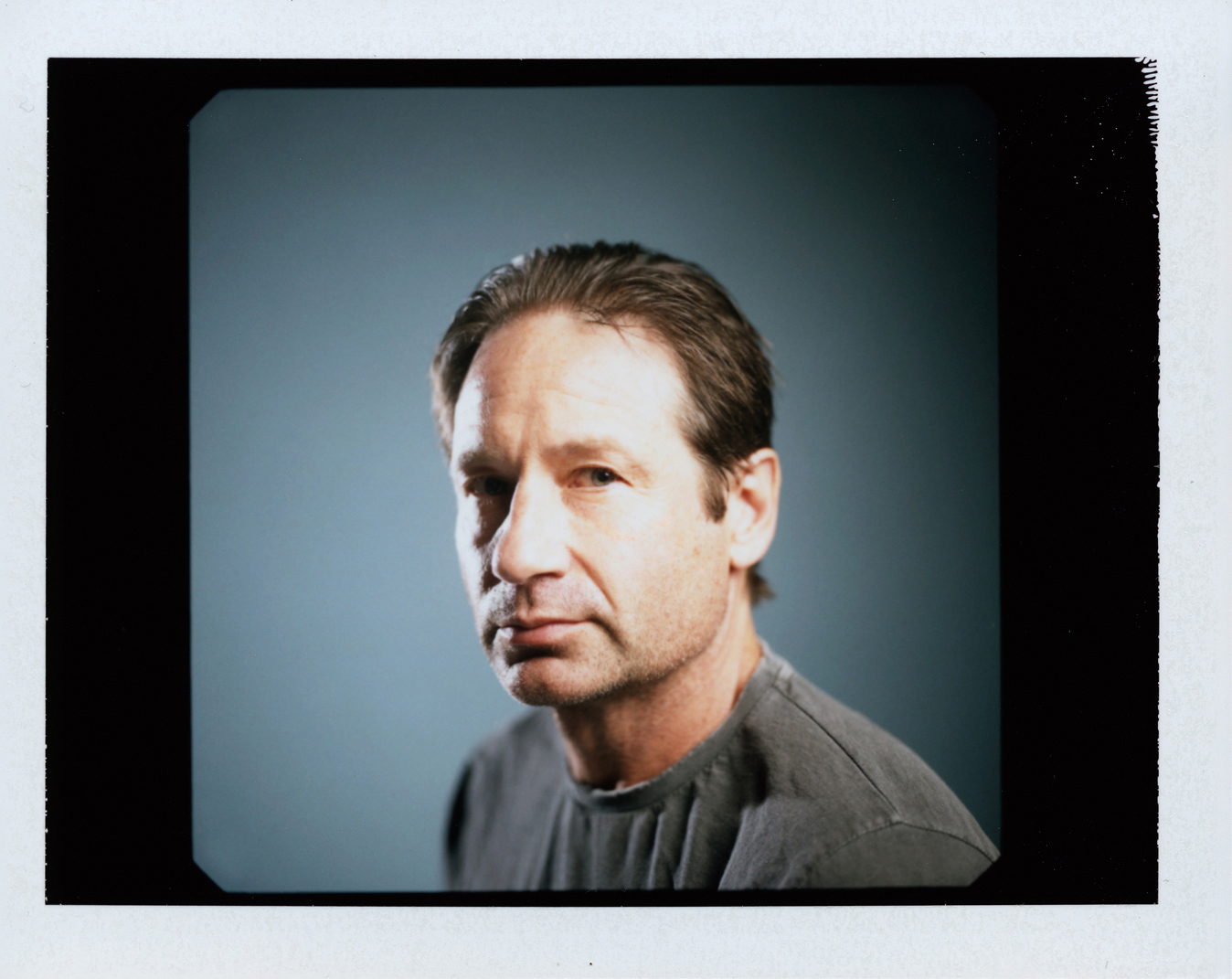David Duchovny doesn’t know why he suddenly decided to take up music, only that he had always wanted to play guitar. And so he picked up the instrument, initially, to amuse himself—on a whim. “It’s a total mystery to me,” he says, quipping: “It’s either that or buy a Porsche.” Taking up either endeavour would would be costly, but music seems to be the more rewarding fit at the moment.
Neither a tour nor a record was anywhere on Duchovny’s mind, and yet in late August, Vancouverites got to spend two evenings with him at his sold-out shows at Alexander Gastown. The performances were scheduled, conveniently, just as his The X-Files reboot was about to wrap filming here.
Just two years or so ago, Duchovny didn’t play, write, or sing music. Evidently, things have progressed since he first laid his eyes on that beautiful Martin D-18GE 1934 Golden Era guitar. Initially, he started learning on his own, looking up sixties and seventies rock n’ roll favourites and figuring out their chord progressions, often with the help of online videos. Then, sneakily, he managed to convince the showrunner for Californication that the star character, Hank Moody, played by Duchovny, should know the guitar. The result: free lessons. “When I open my mouth to sing, strange things can come out from time to time,” admits Duchovny. So he began working with a vocal coach as well. From there, it didn’t take long for him to start writing his own chords, melodies, and lyrics. “That’s been hard work,” he insists. “And it doesn’t sound like it, but I do not have a natural aptitude for singing the notes I want to sing.”
His debut album, Hell or Highwater, arrived earlier this year. “Call him a monster / You can call him a sinner,” sings Duchovny in “Unsaid Undone”. “Set a place for the devil ‘cause he’s staying for dinner.” Duchovny’s particular brand of musical devilishness is of the upbeat folk-rock variety, clearly drawing inspiration from the likes of Bob Dylan and backed by pleasant Tom Petty-like vocals with a slight rasp. Hell or Highwater is a title that suits him well. “It is a sense of accomplishment, but it’s also a sense of wonder,” explains Duchovny.
Truth is, for most of his early life, people (including himself) have told him to stop singing. For a while, he listened. “So to me it’s like—I hate to sound like Mr. Positivity—but you really don’t know what you can do, you really don’t.” Especially with hard work. And that’s a lesson he hopes to impart to his own kids. In fact, that is one of the reasons Duchovny took up the guitar in the first place: “I wanted them to watch me sucking at something and learning it and being frustrated and working hard just to get decent—not even good, just to even get mediocre—I had to work hard to get mediocre.” He pauses: “I wish I learned this earlier in my life.”
Duchovny’s creative career has taken many turns. He first became known to audiences playing the extraterrestrial-chasing FBI agent Fox Mulder in The X-Files, of course, and continued onwards starring in numerous films. Most recently he had a resurgence of popularity with the success of Californication, about a womanizing author, and now stars on a new series called Aquarius as a cop hunting down Charles Manson. In between, he also wrote an allegorical novel called Holy Cow: A Modern-Day Dairy Tale, about a cow who learns of her fate and attempts to break out of a farm. His stage debut was in Neil LaBute’s The Break of Noon opposite Amanda Peet.
“I’m not up there giving details or trying to force my personal biography on people, that’s not art. That’s just aggregation. The art part comes in trying to reach people in their own lives with your life.”
Not fearful of staking his reputation in the least, he attacks each new medium with a certain zealous confidence, and that includes his latest entanglement with music. “I don’t get as nervous as I thought I was going to get,” he admits. “I don’t know why, and I’d rather not try to figure that out as long as it’s going okay.” To him, whether it’s acting in a TV series, writing, or performing songs on stage, it is all an extension of the same thing. “You’re telling a story or you’re entertaining people—or both, hopefully,” he says. “If I’m confident that the story I’m telling is interesting or human or relatable, then I have that confidence. And if I like the sound of the music and it strikes my ear in a nice way, then I feel pretty good about that.”
Not that everyone else is going to enjoy it, too. Some critics have referred to it as a vanity project or a mediocre “dad-rock” album, while the New York Daily News praised it as “credible”, and Flavorpill called it an “easy, breezy listen reminiscent of seventies classic rock”. Fan response has been decidedly enthusiastic. “It’s like ice cream,” Duchovny says. “Some people like chocolate and some people like vanilla. Some people are going to like it and some people won’t. You can’t talk your way into somebody’s musical life, you know? It’s a gut thing. Why do I like it? I don’t know. That’s why it’s beautiful that way. There’s no debate. There’s no good music and bad music, there’s only music I like and music I don’t.”
As an actor, no matter how personal it feels, there is some measure of safety in hiding behind someone else’s words; when you’re a singer/songwriter, however, it’s all in plain sight, open to scrutiny and analysis. “I guess I enjoy that part of it because I feel like my perspective is my own,” says Duchovny. “I’m not trying to do anything or convince anybody of anything, I’m just trying to tell a story. I’m just trying to tell the truth from my particular standpoint, my particular history, that’s all—and just try to make it as universal as possible. I’m not up there giving details or trying to force my personal biography on people, that’s not art. That’s just aggregation. The art part comes in trying to reach people in their own lives with your life.”
As an artist, sharing personal things is inevitable. “That’s what people do with any kind of work,” he says. “They try to connect the dots, and if the dots you gave them are big enough, then when they connect the dots they’ll find they are looking at themselves.” Ultimately, Duchovny feels like he’s got nothing to lose. “The worst thing that can happen is that you fail, and that’s not dying,” he explains. “People think it’s dying, but it’s not—that’s one thing people have to learn.”
For now, he is enjoying touring with his newly acquired musical skills in tow and is equally keen to get back to the studio to work on another album alongside his bandmates. “You just keep on staying alive, questioning, being creative—and who knows what’s going to happen,” he says. “I’m not a singer, but I’m up there singing.”











